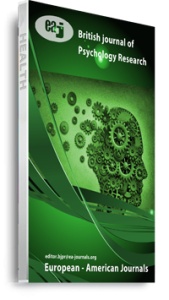Individuals are exposed on a daily basis to a vast amount of contradictory and misleading information. This puts them in a position where they must distinguish between accurate information and falsehoods, claims, and fallacies that have no basis in truth, in order to make appropriate decisions. purpose: The current study aims to uncover common logical fallacies in Egyptian society and examine the relationship between cognitive bias and logical fallacies. In addition to investigating the role of the interaction between some demographic variables (sex, age and level of education) and cognitive bias in determining the type of logical fallacies. Methodology: The participants comprised 234 participants in Egyptian society aged between 15-60 years (M=27.18, s.d=8.48) years. The participants completed Cognitive Bias Scale and Informal Logical fallacies Questionnaire. Findings: The results indicate that the most common logical fallacies in Egyptian society are manipulating through distraction (58%) and Manipulating through emotions (56%), The current study also indicates that There is a positive relationship between cognitive bias and logical fallacies and there are not differences between males and females in logical fallacies. Additionally, adolescents exhibit more logical fallacies compared to adults and elderly individuals. Furthermore, individuals with lower levels of education tend to have more logical fallacies compared to those with higher levels of education. Finally, the results indicate that an interaction effect between age and anchoring bias in determining the type and level of logical fallacies, as adolescents high in anchoring bias recognized their inductive fallacy.
Keywords: Demographic Variables, Egyptian society., cognitive bias, logical fallacies

